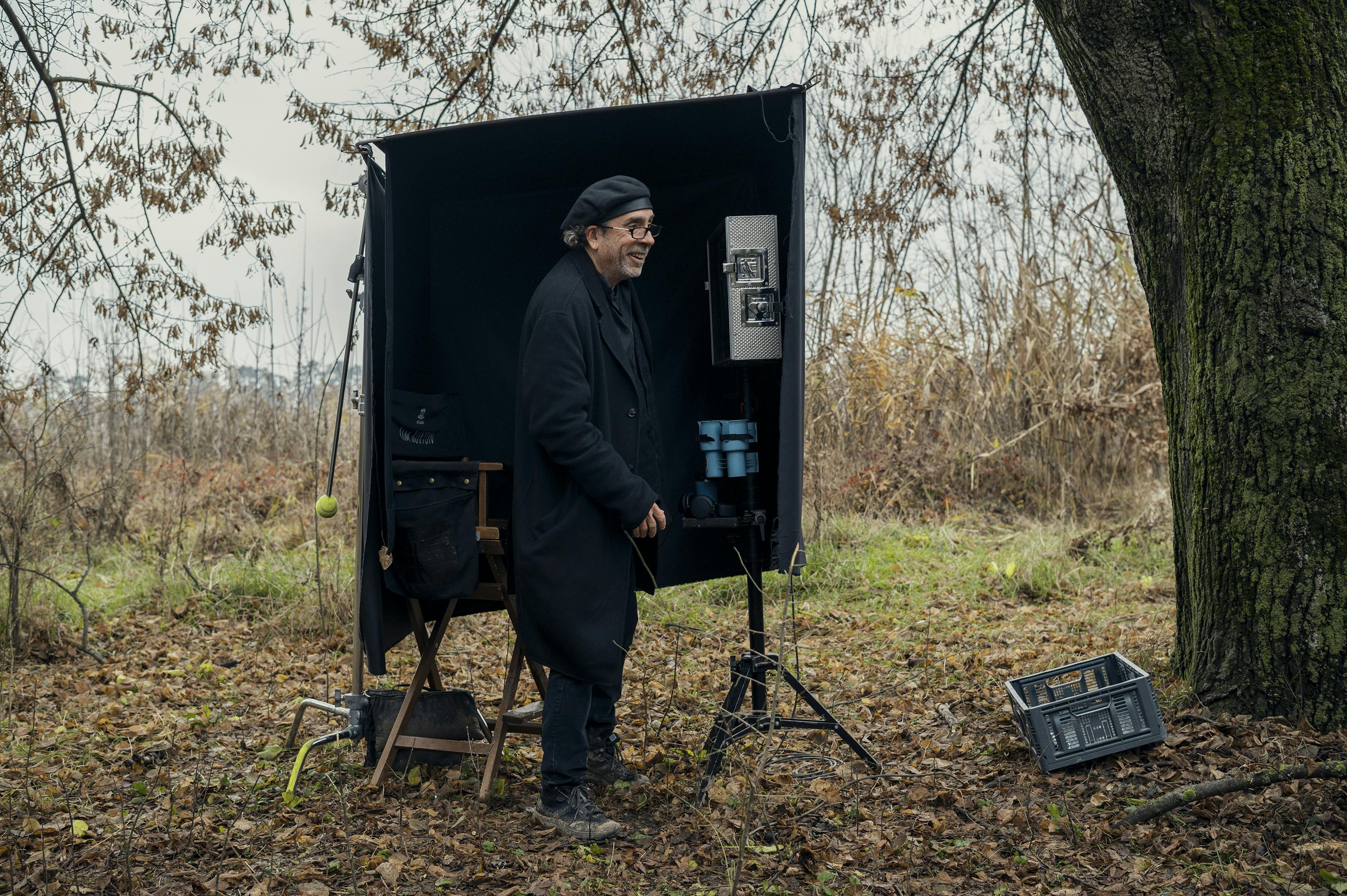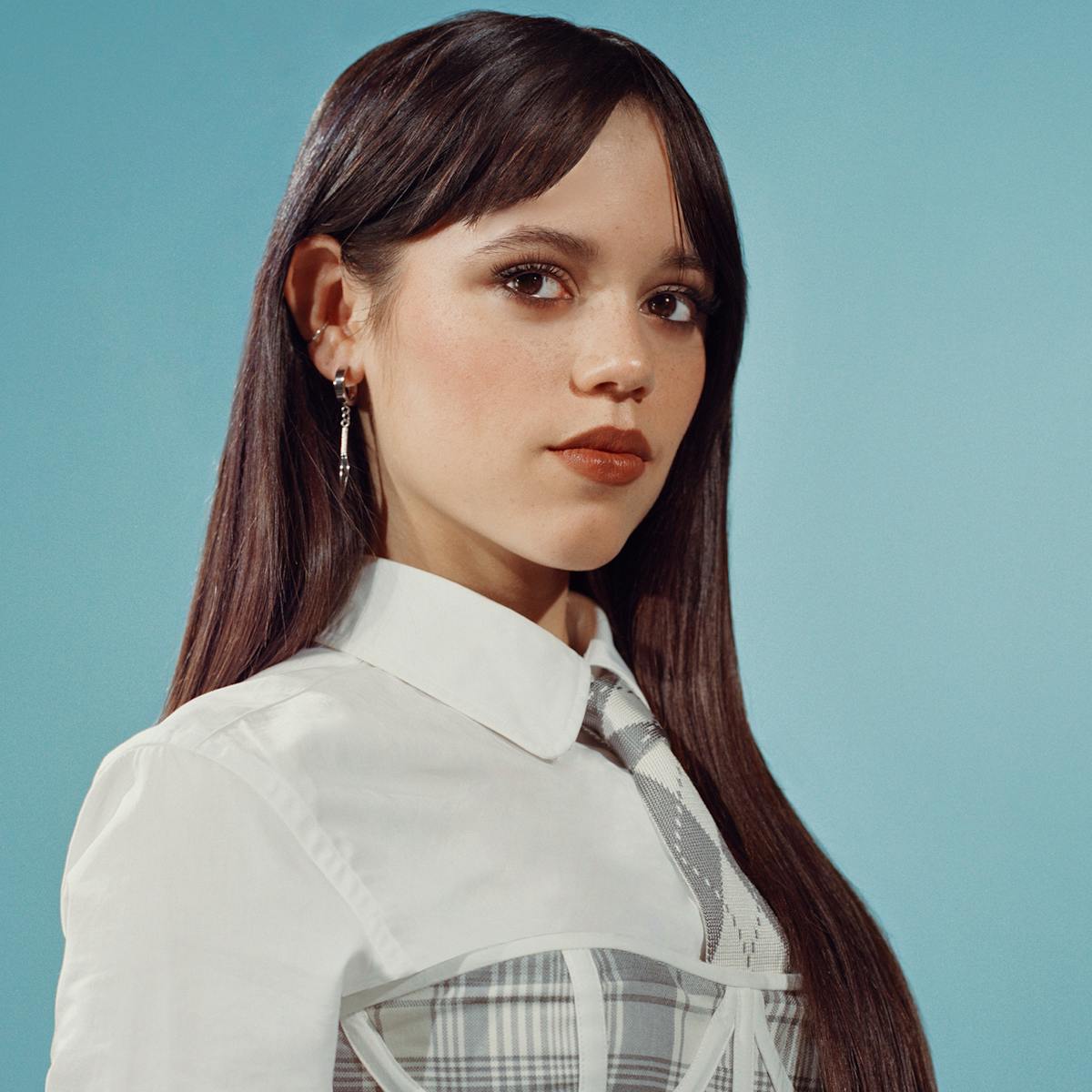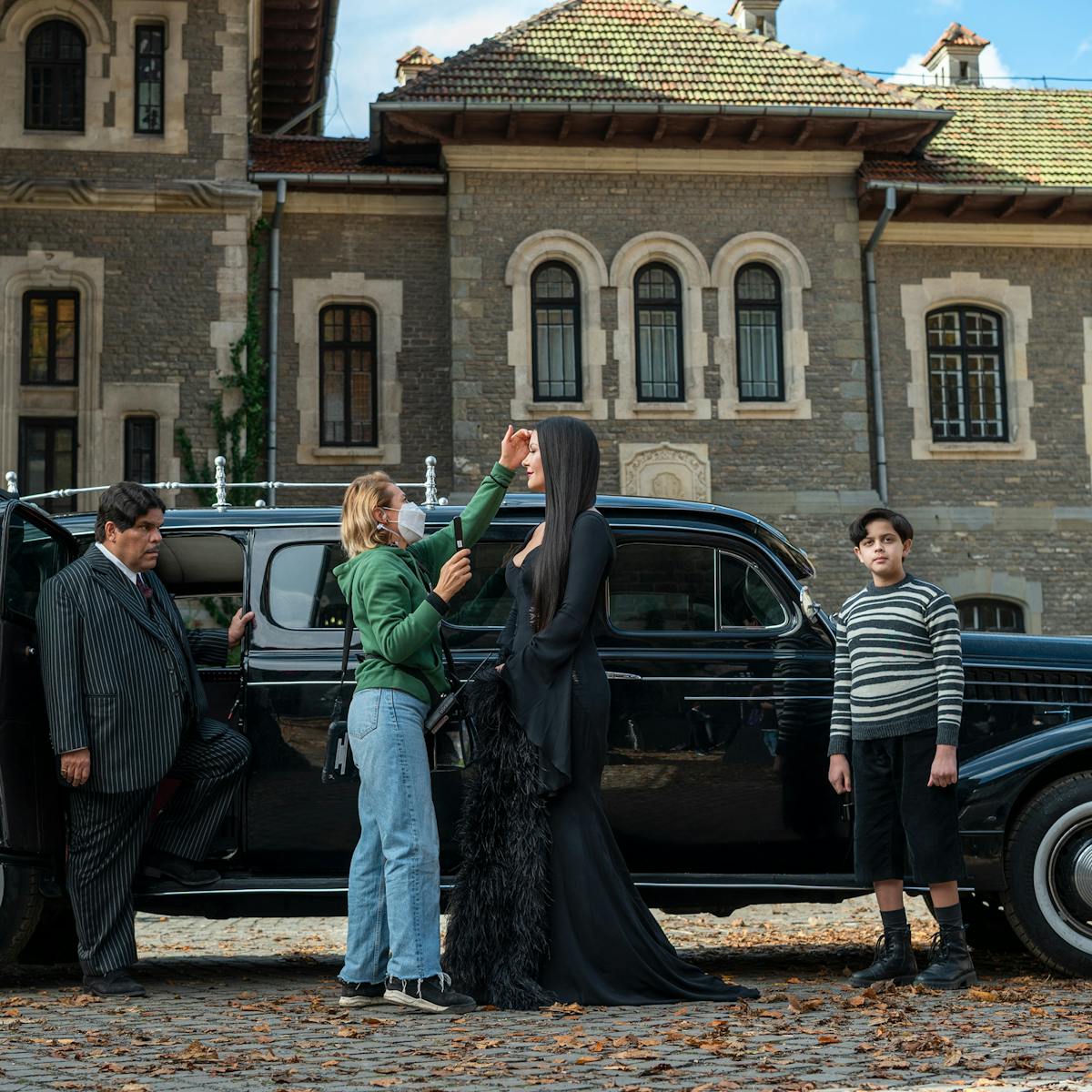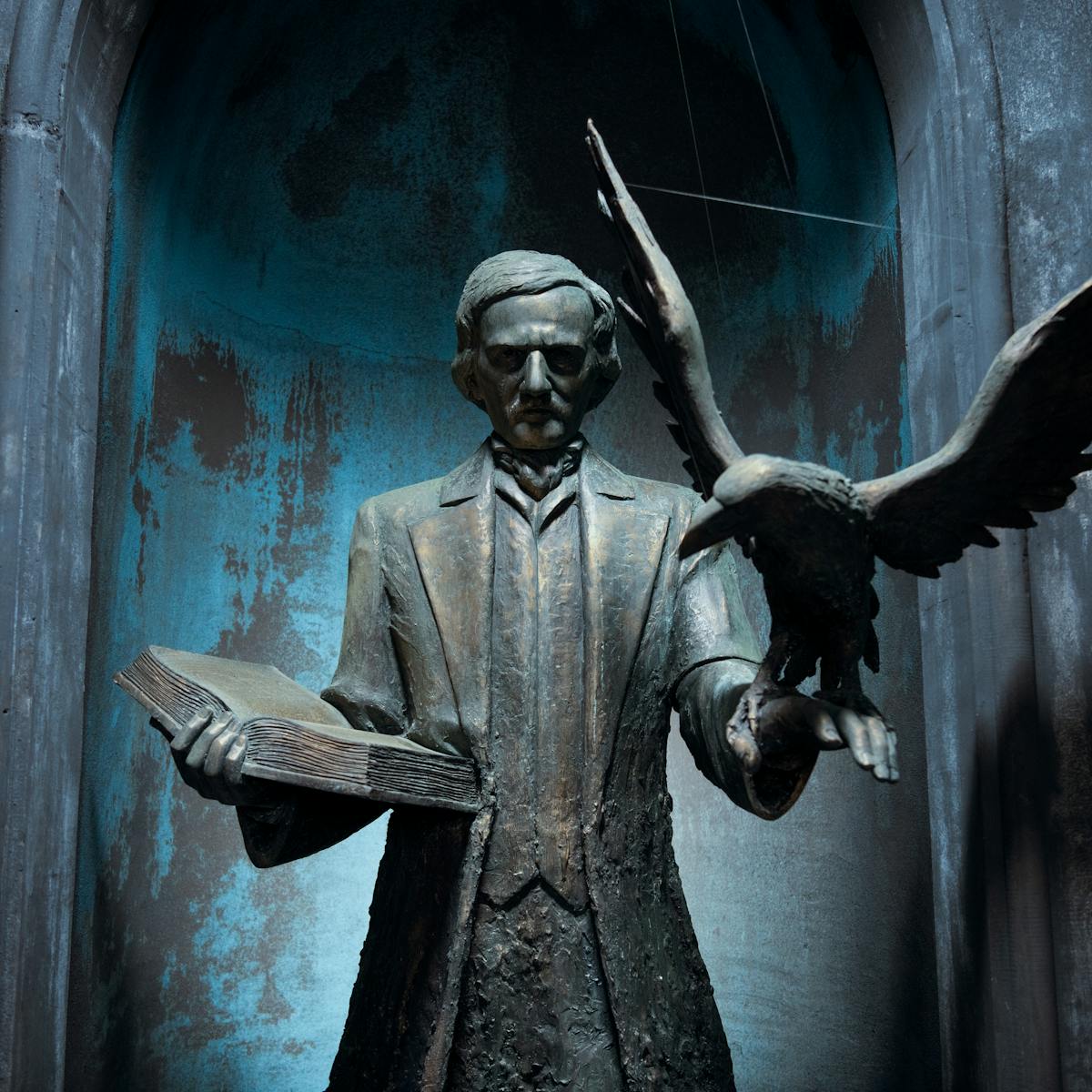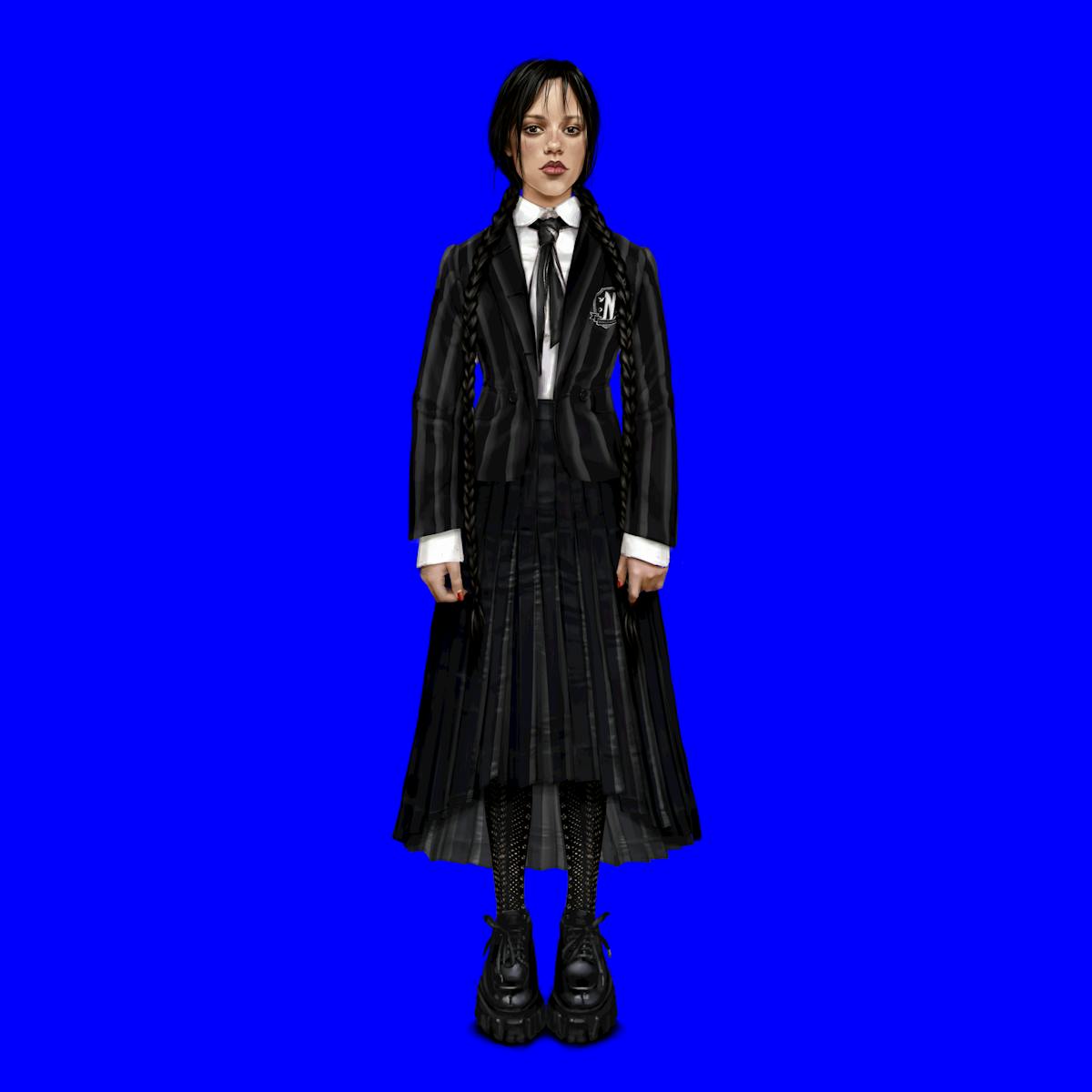When Tim Burton first read Alfred Gough and Miles Millar’s script for Wednesday, the series that centers a teenage incarnation of resolute nonconformist Wednesday Addams, it resonated with the filmmaker so strongly he immediately knew that, despite never before having worked in television, he had to help bring the story to the screen. Burton agreed to come on as an executive producer and to direct the first four of the show’s eight episodes, for which he has earned his first Emmy nomination.
“I think in a past life I might have been a teenage girl because when I read this, I just felt like Wednesday shared my worldview,” Burton says. “That’s what I loved about what Alfred Gough and Miles Millar had written. I felt like they’d written it for me. It brought up those feelings that you have in school, about feeling strange and like you don’t fit in with society and life, school, therapy, your parents, and how you feel about your family. It spoke very strongly to me on all those levels.”
Burton, of course, has built a decades-long career telling stories about characters that don’t quite fit in — from Batman to Beetlejuice, Ed Wood to Alice in Wonderland, his films have always celebrated outsiders and misfits in grand style. His heroes are often wounded yet still well-meaning, though he’s presented his share of merry pranksters and tortured souls, too. Without fail, Burton’s films share a dazzling visual style that is breathtaking whether in shades of black and white or riots of kaleidoscopic color — and they all have moments of winking, subversive humor.
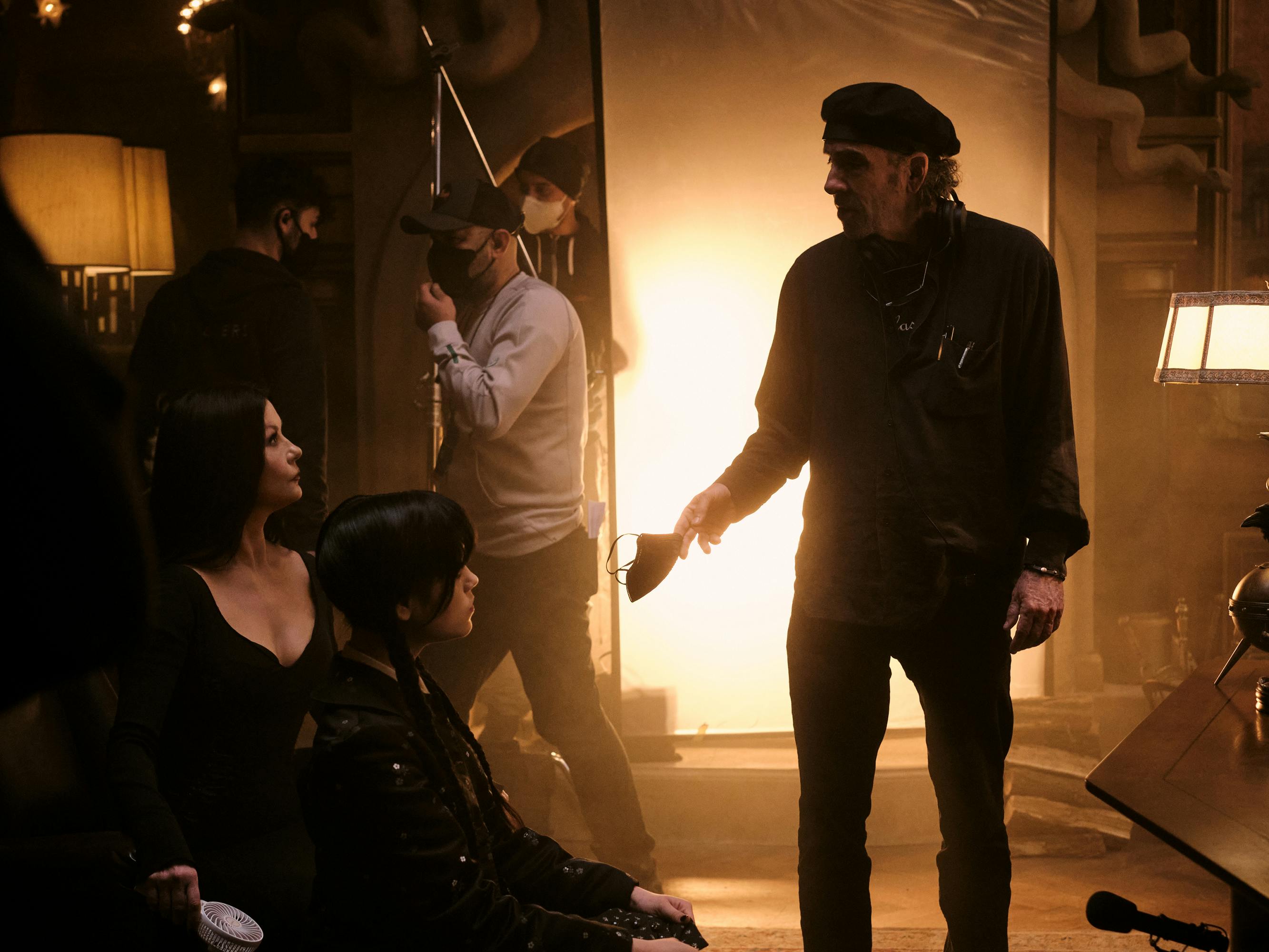
Catherine Zeta-Jones, Jenna Ortega, and Tim Burton
Photograph by Tomasz Lazar
Burton’s movies have earned billions at the box office and have netted two Oscar nominations — for the stop-motion animated features Corpse Bride and Frankenweenie. Despite an eclectic and lengthy filmography, he’s always retained his distinctive point of view, one formed as a child growing up in Burbank, California watching monster movies and harboring fantasies of becoming a mad scientist.
The filmmaker’s directorial vision and honesty about his own sense of otherness have won him an ardent and sizable following and made him the ideal creative partner for a show about Wednesday Addams (Jenna Ortega). “Tim was always our first choice to direct this project,” Gough says. Adds Millar: “The aim of the series was for it to feel like an eight-hour Tim Burton movie.”
From the opening strains of Danny Elfman’s ominous score as Wednesday strides through the hallways of Nancy Reagan High School, Wednesday is unmistakably Burton. The show, which features characters originated by cartoonist Charles Addams in the New Yorker, opens with a blackly funny prologue in which the deadpan heroine takes revenge on a group of
bullies for harassing her younger brother Pugsley (Isaac Ordonez) — resulting in her expulsion. Frustrated parents Morticia (Catherine Zeta-Jones) and Gomez (Luis Guzmán) then send Wednesday to their alma mater Nevermore Academy, a boarding school for vampires, gorgons, werewolves, and sirens. There she’s forced to contend with mean girls, brooding boys, a monster on a murderous rampage, and an extroverted roommate, Enid (Emma Myers), determined to be her best friend.
“Wednesday, to me, is the classic outsider, and what was fun about that is she’s in a school for outsiders — she’s an outcast in a school for outcasts,” Burton says. “That was a great thing. It’s easy for me to relate to, and it’s quite cathartic to keep working on those themes because that’s how I feel. When I was a child, I used to play in a cemetery near my house and loved horror movies and felt like Wednesday in a certain way.”
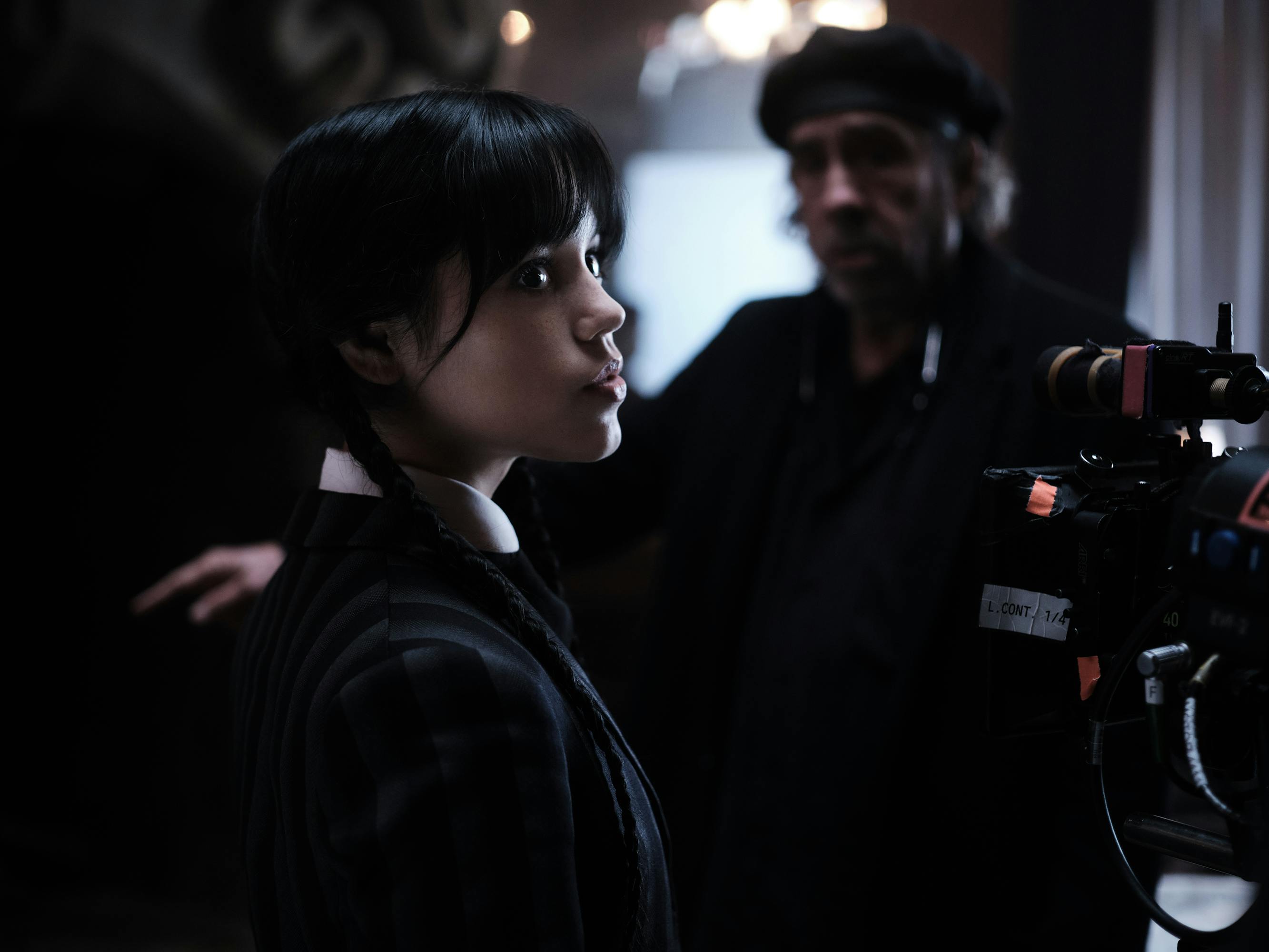
Jenna Ortega and Tim Burton
Photograph by Tomasz Lazar
Burton was instrumental in casting Ortega in the lead role — “She’s like a silent movie actress in the sense that she’s able to convey things without words,” he says of the star — and they quickly fell into an easy rapport. “Tim is one of the sweetest directors I’ve ever worked with, but also the most detail-oriented,” says Ortega, who earned an Emmy nominaton for her portrayal of Wednesday and who is now set to star in the filmmaker’s upcoming sequel to Beetlejuice. “He’s a collaborator, which is nice, especially as an actor. He’s somebody who trusted and valued what I said and ensured that it was heard on set. That was really, really meaningful to me. I felt really supported by Tim. He’s not even really aware that he’s Tim Burton.”
Gwendoline Christie, who plays Nevermore principal Larissa Weems, had her own moment of feeling starstruck by Burton. “I have wanted to work with Tim Burton ever since I can remember,” says Christie. “For someone that’s always felt an outsider . . . [his films] had a deep and resonant humanity. So, I was walking through a field when I got a text saying, ‘Hi, Gwen, Tim Burton would like to speak to you about his new project,’ I think I evaporated. Then I had to do the Zoom [with him] and I was a mess. I was bright red and frankly weird, but they cast me anyway. It was honestly a dream come true.”
To help shape the look and feel of Wednesday, Burton turned to frequent behind-the-scenes collaborators including costume designer Colleen Atwood, composer Elfman, and production designer Mark Scruton — who had been an art director on Burton’s 2016 literary adaptation Miss Peregrine’s Home for Peculiar Children — all of whom have earned Emmy nominations for their work on Wednesday. “Part of the fun of it is trying to create a world where these characters are in a heightened reality but feel real,” Burton says. “Every part of it is meant to support that. It’s always fun to do. You want to make it feel real within its own context.”
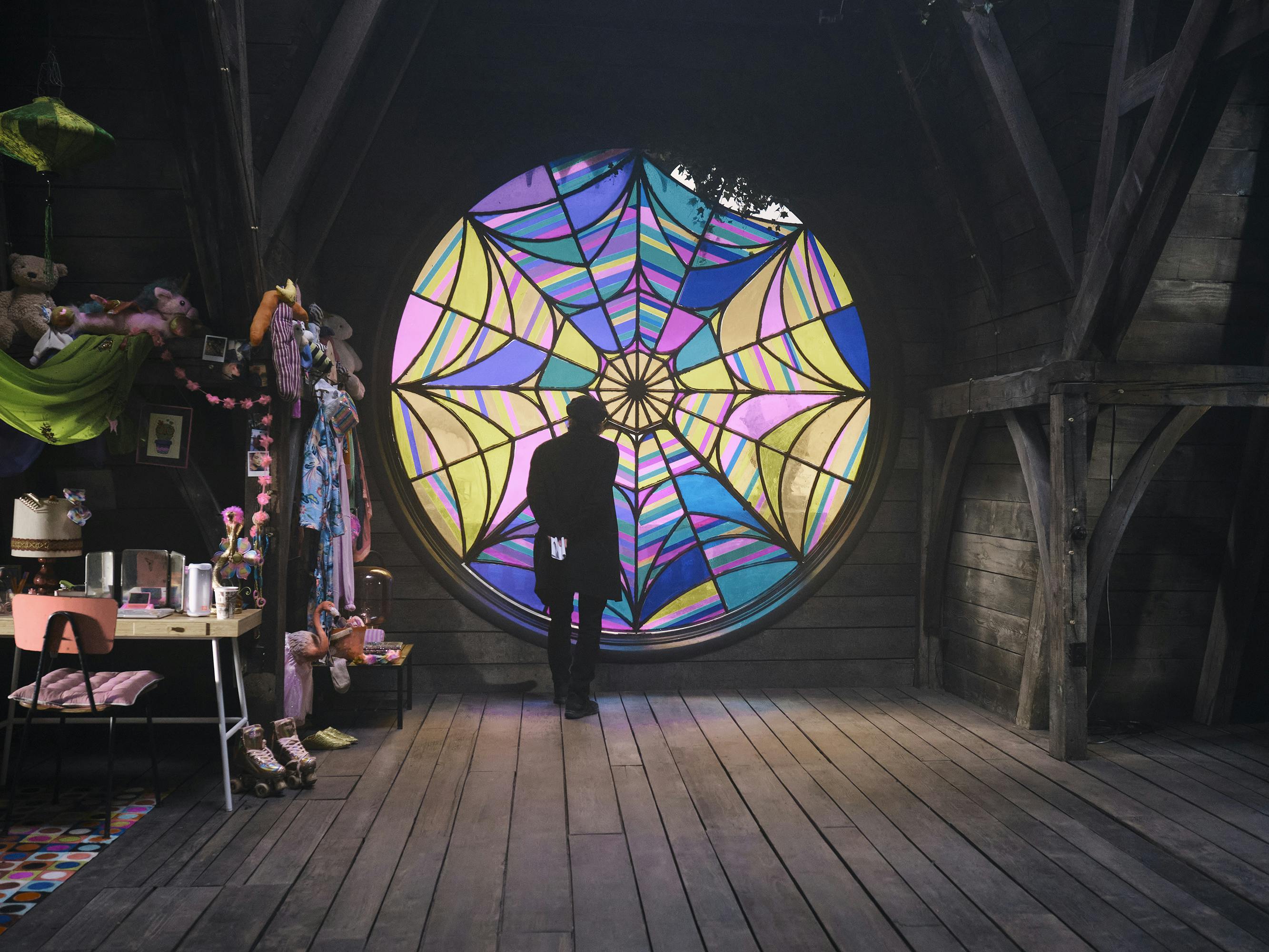
Tim Burton
Photograph by Tomasz Lazar
During the months-long shoot, the series visited locations that included Cantacuzino Castle in Bușteni, Romania, which served as the exterior of Nevermore Academy, and Bucharest’s Monteoru House, roughly a two-hour drive to the south, although the show’s fictional neighboring town of Jericho was built from the ground up. “[Burton’s] gothic style definitely shines through,” says Ortega of the show’s aesthetic. “He was very specific about coloring and framing and what lenses we would use. He liked when the lenses were wide and a bit disoriented. He also drew a lot. He didn’t have shot lists, but he would draw images of me.
If you went into his office, it was just drawings of the show.”
Burton’s original connection with Wednesday and her clan came through Charles Addams’s visuals — “My first love was the Addams family cartoons and drawings,” he says — though it was the larger ideas in the cartoons, the clever ways in which they presented bizarre behavior as routine, that the filmmaker most deeply connected with, and which strongly influenced his directorial approach to Wednesday. “I think all families are strange, and the Addams family is very symbolic of how I feel about families, because I’ve never met one family that doesn’t have some strange qualities to them,” he adds.
“What I loved about this,” Burton says of Wednesday, which has earned a whopping 12 Emmy nominations, “was that [Gough and Millar] took the Addams family, which in past incarnations has been very cartoony, which is great, [and added] a reality to it. It explored Wednesday more as a character. She sees things in black and white — mostly black — but again, I just really relate to her. This is longer form, and to see the shades of her a little bit more was very exciting.”
All interviews included in this piece were completed prior to July 14, 2023.
